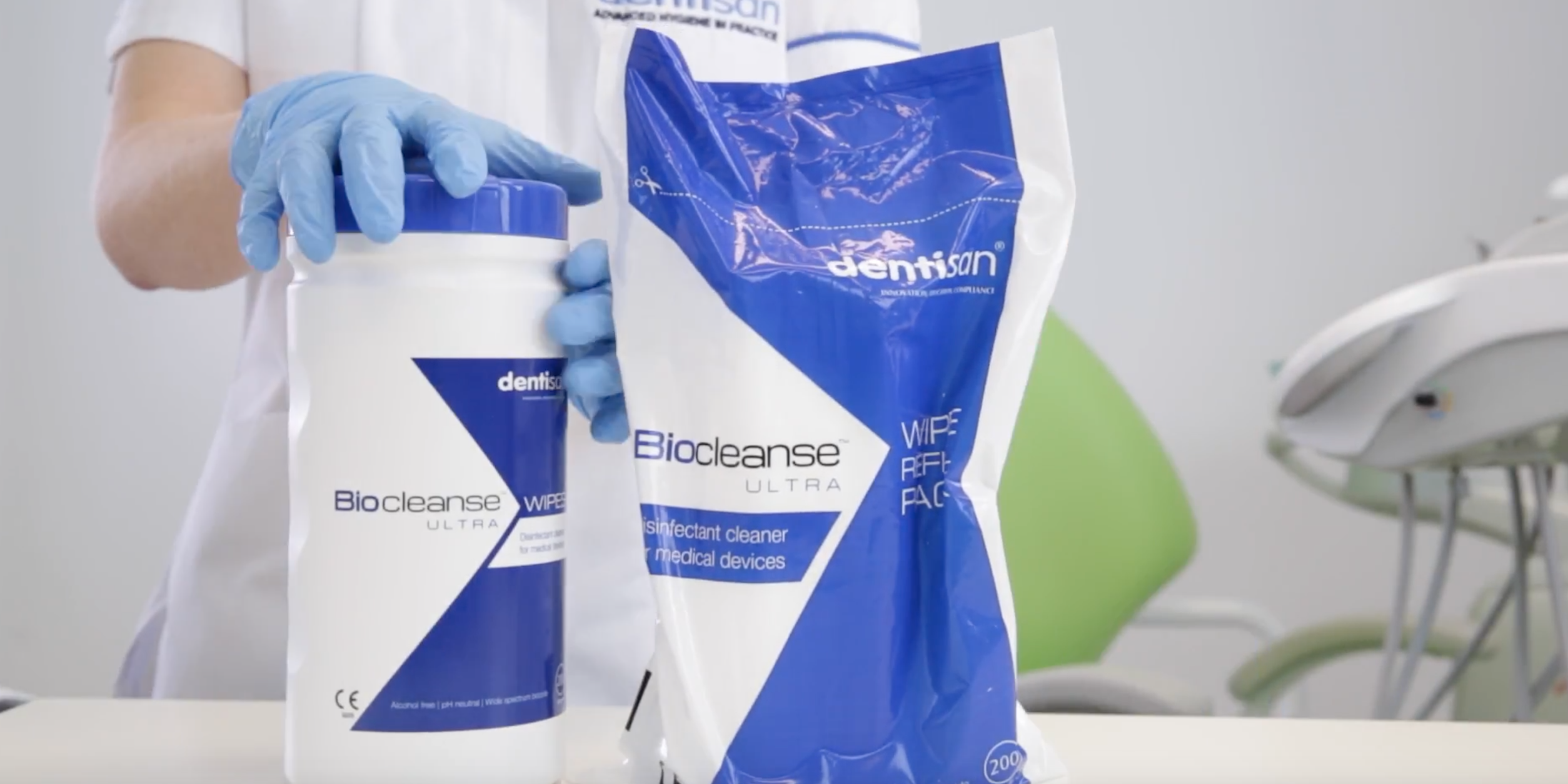Medical device surface cleaning & disinfection and the Coronavirus
By Laura Yates BSc CChem MRSC, Technical Manager at dentisan.
Whilst the world is focussed on hand hygiene, let’s not forget the importance of surface cleaning and disinfection as part of the fight against COVID-19 in the dental surgery.
What started as reports of a previously unknown virus causing serious illness in the Chinese province of Hubei has now become headline news around the world, as the battle continues to stop the global spread of COVID-19. COVID-19 is a respiratory disease caused by a new strain of coronavirus. Coronaviruses are enveloped viruses known to infect both humans and animals. In humans these pathogens cause respiratory illnesses ranging from the common cold to far more serious infections including severe pneumonia and bronchitis.
With regards to surfaces within a practice, both cleaning and disinfection are required processes, but importantly cleaning must take place before disinfection to ensure that bacteria, proteins and other contaminants are removed from surfaces before disinfection takes place. This is why a single stage process which combines cleaning and disinfection is often the preferred choice for dental nurses.
It is known that coronavirus can remain active on surfaces for up to 10 days, therefore surface cleaning and disinfection are of upmost importance in tackling the transmission of the virus.
Biocleanse Ultra has proven efficacy against enveloped viruses such as Vaccinia virus, HIV, HBV and HCV H1N1 and H5N1. It is therefore expected that Biocleanse Ultra will have efficacy against coronavirus (also an enveloped virus). As this is a novel virus, specific testing on the COVID-19 strain is not yet available.
The suitability of alcohol for disinfection of hard surfaces remains questionable. Despite being an effective disinfectant in clean conditions, alcohol is not effective as a cleaner, especially with proteinaceous soils. It evaporates very rapidly in use, limiting the effective contact time. In addition to its volatility, alcohol is highly flammable, and is incompatible with common surgery surfaces such as PMMA and upholstery. More worrying is that alcohol acts to fix proteins to surfaces, a problem highlighted in HTM 01-05. Section 6.57 that states, “…the presence of protein will compromise the efficacy of alcohol-based wipes. Note: Alcohol has been shown to bind blood and protein to stainless steel. The use of alcohol with dental instruments should therefore be avoided.”
Biocleanse Ultra Wipes are a single-stage cleaner and disinfectant. They can be used for both cleaning (where a detergent wipe may be called for) and disinfecting, or both where appropriate. The wipes are wetted with a non-alcohol formulation so there is no concern of fixing protein to a surface, which is a significant issue with traditional alcohol wipes.
The COVID-19 outbreak, along with a significant rise in cases of other viral illnesses, including mumps and measles, puts a spotlight on how easily infections can spread, and ultimately how they can be prevented using stringent infection control procedures. For the dental team and patients alike, such measures drastically reduce the likelihood of contracting any infection in the dental surgery.
By complying with government guidelines on hand hygiene, surface cleaning/ disinfection and safe practices, as well as understanding how to break the chain of infection and how pathogens are transmitted, makes it far easier to take the correct preventive and control measures.
Laura Yates BSc CChem MRSC
Technical Manager







